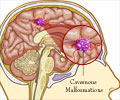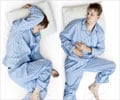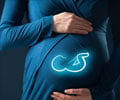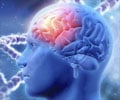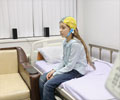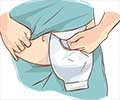Symptoms of Epilepsy
Shakespeare describes an attack of epilepsy or the 'falling sickness' in the famous Roman statesman and commander Julius Caesar in Act I, Scene ii of his tragedy ‘Julius Caesar’, Casca describes how Caesar ‘swooned and fell down...' and a few verses later says: "He fell down in the market place, and foamed at the mouth, and was speechless".
Epilepsy was known as 'Hercules sickness' for over 2000 years because Hercules was known to suffer from it. This is stated in the fifth main scene of Euripides' play ‘Hercules furens’ and is described in the following words: "And everyone looks at the man who has been struck dumb and is completely changed, whose reddened eyes roll, from whose beard froth drips... He bears his body and struggles to breathe".
The intensity of the symptoms varies greatly with individuals. The kind of seizure that affects a person depends on a variety of things such as the part of the brain affected and the underlying cause of the seizure. They may range from simple staring spells and being unconscious to violent convulsions.
Most patients experience the same symptoms time and again , while some people experience different symptoms each time. There are some disorders that may give rise to symptoms resembling those associated with seizures. They are panic attacks, Transient Ischemic Attacks (TIAs) , and other disorders that cause loss of consciousness.
An aura consisting of strange sensations occur in some individuals before the seizures. These sensations may include a tingling , detecting a strange smell, or emotional changes. Seizures may occur continuously without an explanation.
A few of the non-specific symptoms include-
- Headache
- Changes in energy levels or mood
- Feeling of Dizziness
- Loosing consciousness
- Confusion
- Memory loss.
The different types of epilepsy and their symptoms are listed below-
1. PETIT MAL SEIZURES
This type of epilepsy occurs mostly during childhood. It has very few or no body movement. During the episode, the individual just blinks his eye, subsequently loosing awareness about his surroundings
2. GRAND MAL SEIZURES (GENERALIZED TONIC-CLONIC SEIZURES)
Violent muscle contractions affecting the whole body, loss of consciousness and frothing from the mouth are the main symptoms. The breathing stops temporarily. Tongue or cheek biting is another danger in this type of seizures.
3. SINGLE FOCAL SEIZURES
In this type of epilepsy, muscle contractions of a specific body part and abnormal sensations occur. Feeling of nausea, sweating, skin flushing and dilation of pupils may also occur.
4. PARTIAL COMPLEX SEIZURES
Sweating, flushing of the skin, change in personality or emotions are some of the symptoms associated with this kind of seizures.
Complications
Usually, complications are a result of repeated or long stretches of convulsions. Injuries resulting from a fall, biting the tongue and accidents that occur while driving or while operating machinery are the life- threatening complications of a seizure. Side effects from medications may also lead to complications.






